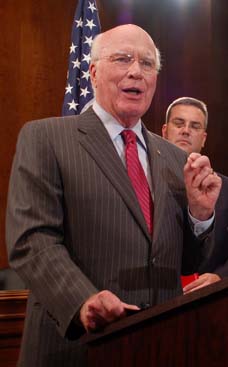
In The Mischief of Creative Things, Oldenburg explained how the narrative presented all possibilities about the perception of AIDS in Africa from the viewpoint of Malians. People typically become tied closely to their own perception within their own culture, and Oldenburg encouraged people to step out of their comfort zones, and see things from other viewpoints. That's where players of a game or an interactive narrative like The Mischief of Creative Things can peel back "multiple layers of truth," he said. For example, Oldenburg said there is a belief in Mali that AIDS doesn't exist, and that he, as a Peace Corps worker, was there to spread propaganda. Picking apart that belief can reveal its sources. One "layer" under that belief might be an ignorance of medicine, for example. Another layer might be the belief that, although AIDS exists, people deny its existence, as they feel the disease doubles as a way to facilitate negative population growth through family planning programs. The Peace Corps can also serve as a propaganda machine for U.S. culture, some might believe. With The Mischief of Creative Things, a player of can walk away with any of these or all of these kinds of conclusions, whether they are considered "right" or "wrong." The point is, the narrative presents all possibilities for the player to ponder and draw conclusions from. "Subtly leading" the player to make their own inward discoveries has much to do with being ambiguous -- not everything has to be laid out conspicuously for a player. "I think there are huge benefits for allowing the player to go from the known to the unknown to fill in the gaps," said Oldenburg. "...Gaps are sometimes just as important as actual conversation."
Aaron Oldenburg creates Flash-based interactive narrative called "The Mischief of Created Things," a work based on his two years as a Peace Corps worker in the West African country of Mali
GDC Austin: Interactive Narrative As a Counselor
by Kris Graft
September 15, 2009
GDC Austin: Interactive Narrative As a Counselor
To University of Baltimore assistant professor Aaron Oldenburg, an effective interactive narrative is much like being a counselor for the player, he said during a Tuesday session at the GDC Austin Game Writers Summit.
Oldenburg is the man behind the Flash-based interactive narrative called The Mischief of Created Things, a work based on his two years as a Peace Corps worker in the West African country of Mali.
During his time there, he had journal entries, letters home, and many pictures of his experiences. "Coming back and telling stories wasn't satisfying. It didn't go far enough," he said. An interactive narrative seemed like the best way to present his time there.
Oldenburg also previously worked as an HIV and AIDS hotline volunteer and educator on the disease. In that capacity and while in the Peace Corps, he found himself often in the role of a counselor, a role that he found has parallels with game design.
In counseling, he said, you're not giving a subject advice, or telling them what they should do. Instead, a counselor leads the subject, subtly, to their own answer. "I think with interactive narrative in game design, [leading a subject to their own answer] has a huge potential in this kind of media."
In some instances as an AIDS hotline worker, he'd encounter someone contemplating suicide. Telling people simply not commit suicide, isn't always the most effective way to approach the situation, he said.
Instead, Oldenburg explained, he had to find ways to lead the subject to present all options to himself, to make all routes obvious. Every option and path is valid, even suicide, although that would lead to the most undesirable outcome. But to take that choice away is denying the subject of the complete reality of the situation.
In The Mischief of Creative Things, Oldenburg explained how the narrative presented all possibilities about the perception of AIDS in Africa from the viewpoint of Malians. People typically become tied closely to their own perception within their own culture, and Oldenburg encouraged people to step out of their comfort zones, and see things from other viewpoints.
That's where players of a game or an interactive narrative like The Mischief of Creative Things can peel back "multiple layers of truth," he said.
For example, Oldenburg said there is a belief in Mali that AIDS doesn't exist, and that he, as a Peace Corps worker, was there to spread propaganda. Picking apart that belief can reveal its sources. One "layer" under that belief might be an ignorance of medicine, for example. Another layer might be the belief that, although AIDS exists, people deny its existence, as they feel the disease doubles as a way to facilitate negative population growth through family planning programs. The Peace Corps can also serve as a propaganda machine for U.S. culture, some might believe.
With The Mischief of Creative Things, a player of can walk away with any of these or all of these kinds of conclusions, whether they are considered "right" or "wrong." The point is, the narrative presents all possibilities for the player to ponder and draw conclusions from.
"Subtly leading" the player to make their own inward discoveries has much to do with being ambiguous -- not everything has to be laid out conspicuously for a player. "I think there are huge benefits for allowing the player to go from the known to the unknown to fill in the gaps," said Oldenburg. "...Gaps are sometimes just as important as actual conversation."
He encouraged writers to go outside of comfort zones, and learn how to allow someone to see their own beliefs in a different way. "[The Mischief of Creative Things] affected my philosophy toward interactive game design as a type of counseling," Oldenburg said.













